Indigenous Governance Database
Honoring Nations Reports
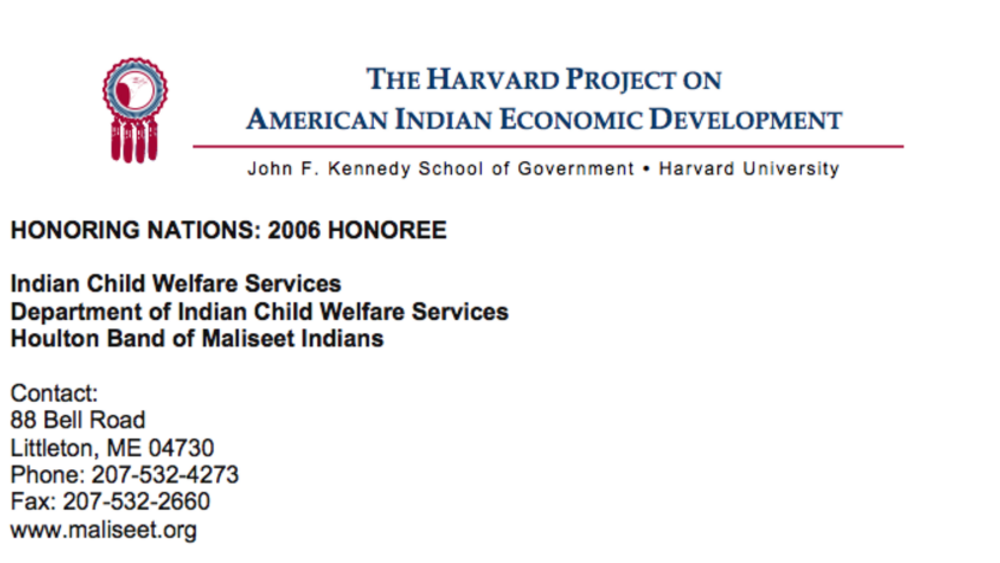
Houlton Band Indian Child Welfare Services
Seeking to establish collaborative working relationships with the state while firmly asserting sovereignty over Maliseet children, a Child Welfare Department was formed by the Houlton Band. The department created a Child Protective Team made up of professionals and volunteers to review and seek…
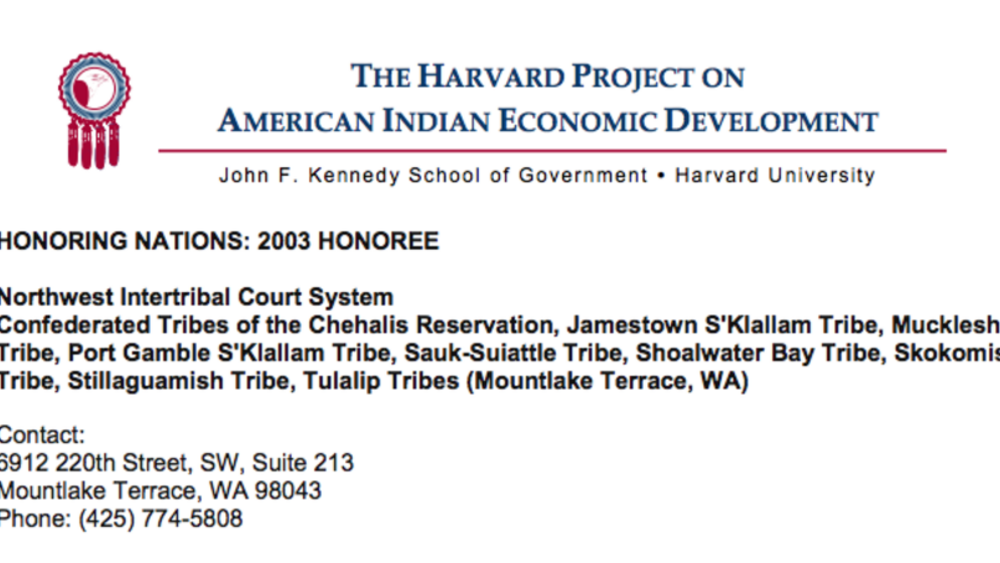
Northwest Intertribal Court System
The Northwest Intertribal Court System (NICS) assists tribes in developing tribal courts that provide fair, equitable, and uniform justice for all who fall within their jurisdiction. Owned by a consortium of tribes in Washington State, NICS recognizes the sovereignty, individual character, and…
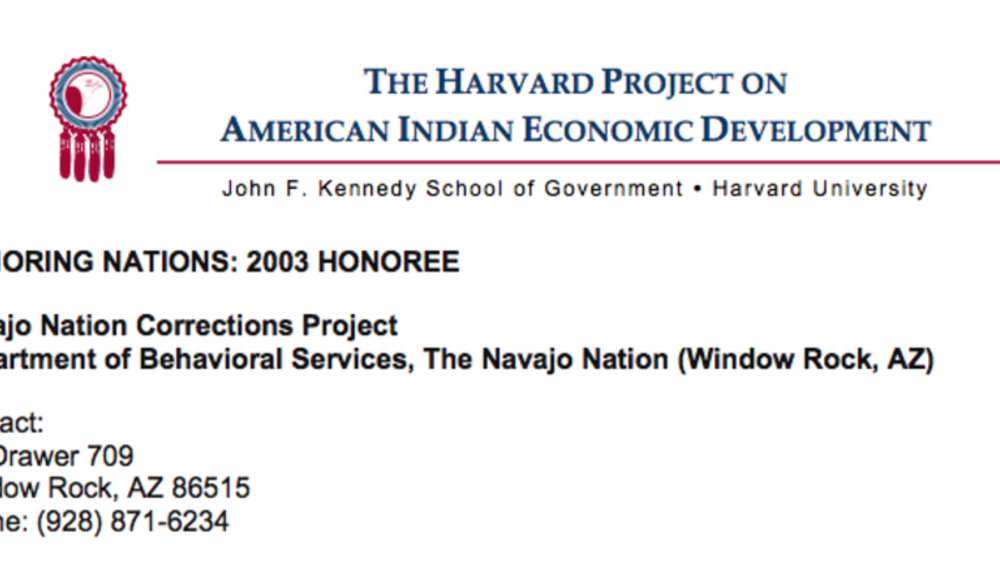
Navajo Nation Corrections Project
Established in 1983, the Corrections Project facilitates, coordinates, and advocates for the use of spiritual ceremonies, cultural activities, and counseling for Navajo and other Indians in correctional facilities. As the liaison between inmates, their families, and Indian and non-Indian government…
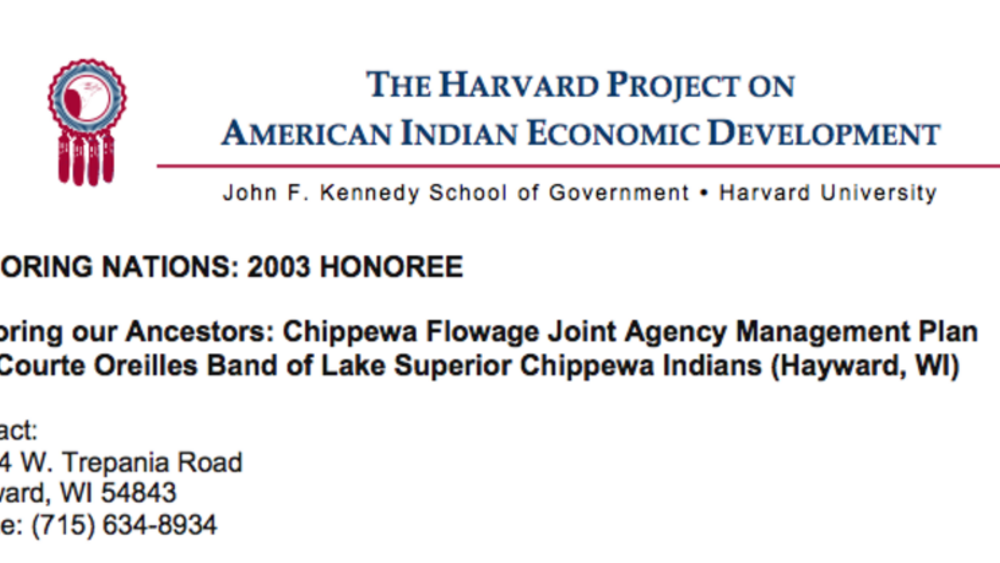
The Chippewa Flowage Joint Agency Management Plan
The Joint Agency Management Plan brings together three governments — the Lac Courte Oreilles Band, the State of Wisconsin, and the US Department of Agriculture Forest Service — to co-manage the Chippewa Flowage, a 15,300-acre reservoir created in 1923 that inundated a tribal village. Taking into…
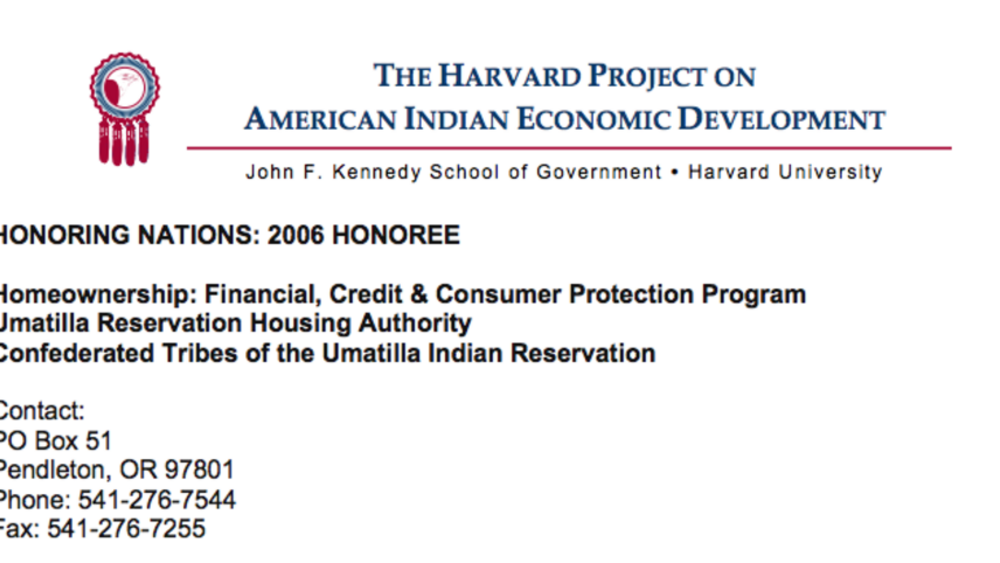
Umatilla Homeownership: Financial, Credit and Consumer Protection Program
Recognizing the necessary links between promoting a strong economy, maintaining positive cultural connections, and the ability to own a home, the Umatilla Housing Authority promotes the "Wapayatat" Homeownership: Financial, Credit and Consumer Protection Program. The seven-week course provides…
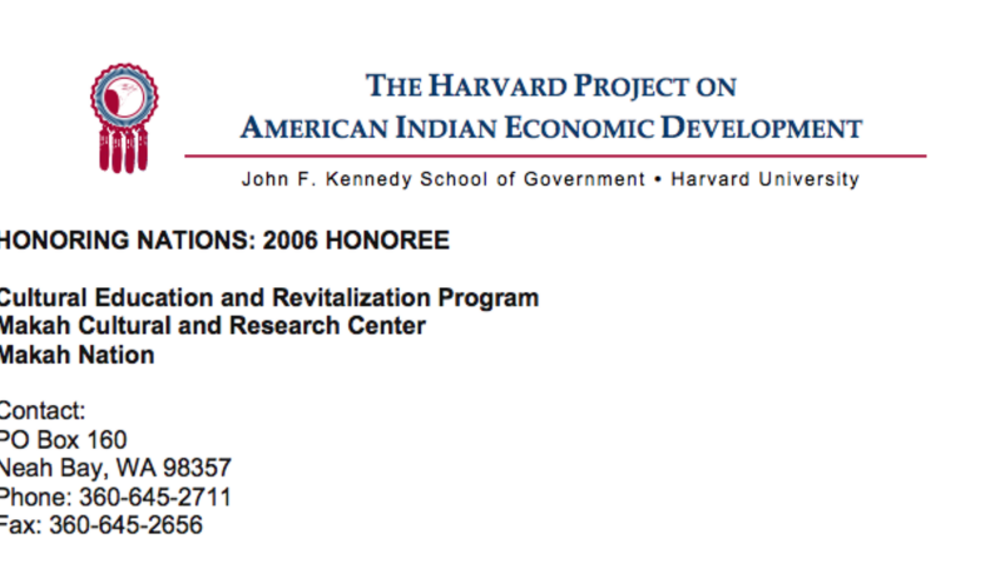
Makah Cultural Education and Revitalization Program
The Cultural Education and Revitalization Program serves as the hub of the community and stewards of a world class museum collection. Keen efforts and awareness demonstrated by staff and community members make this Center unique. Programs are truly guided by the needs of the Nation and its citizens…
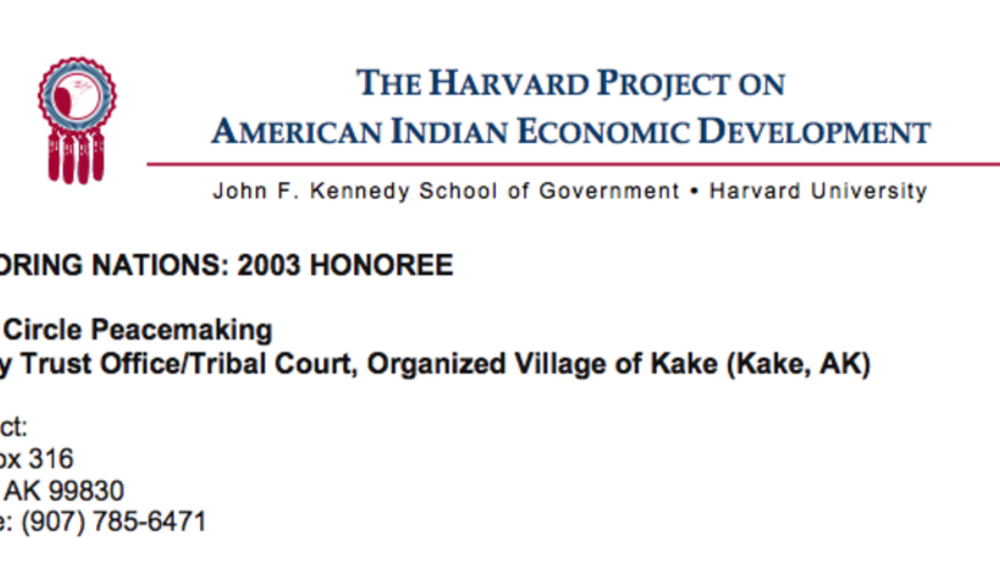
Kake Circle Peacemaking
Restoring its traditional method of dispute resolution, the Organized Village of Kake adopted Circle Peacemaking as its tribal court in 1999. Circle Peacemaking brings together victims, wrongdoers, families, religious leaders, and social service providers in a forum that restores relationships and…
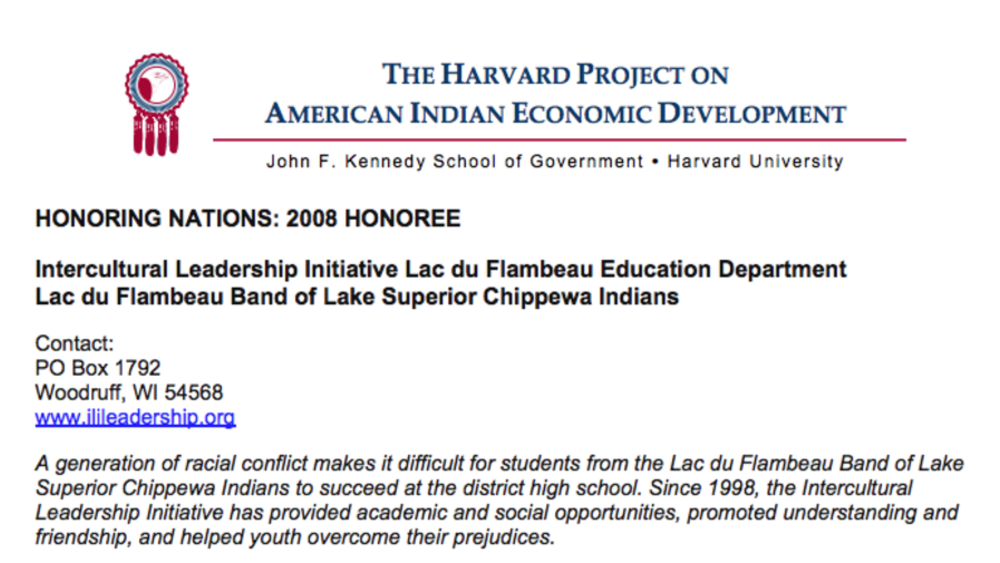
Lac du Flambeau's Intercultural Leadership Initiative
A generation of racial conflict makes it difficult for students from the Lac du Flambeau Band of Lake Superior Chippewa Indians to succeed at the district high school. Since 1998, the Intercultural Leadership Initiative has provided academic and social opportunities, promoted understanding and…
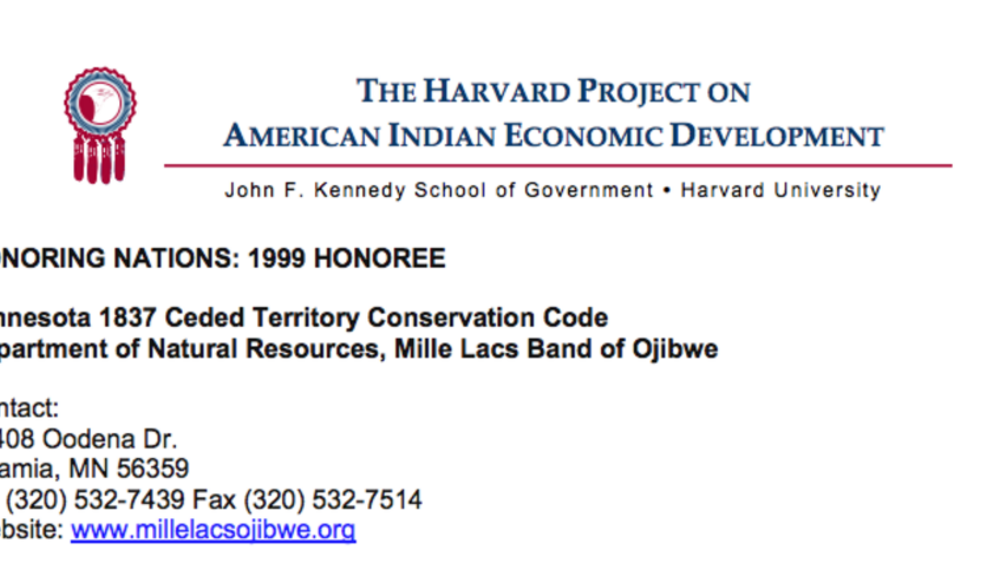
Minnesota 1837 Ceded Territory Conservation Code (Mille Lacs)
In 1997, the Band successfully developed a conservation code that enables the Tribe to exercise its treaty rights to hunt, fish, and gather. The Code sets out detailed hunting and fishing regulations for Band members that protect the natural resources while allowing for the continuation of…
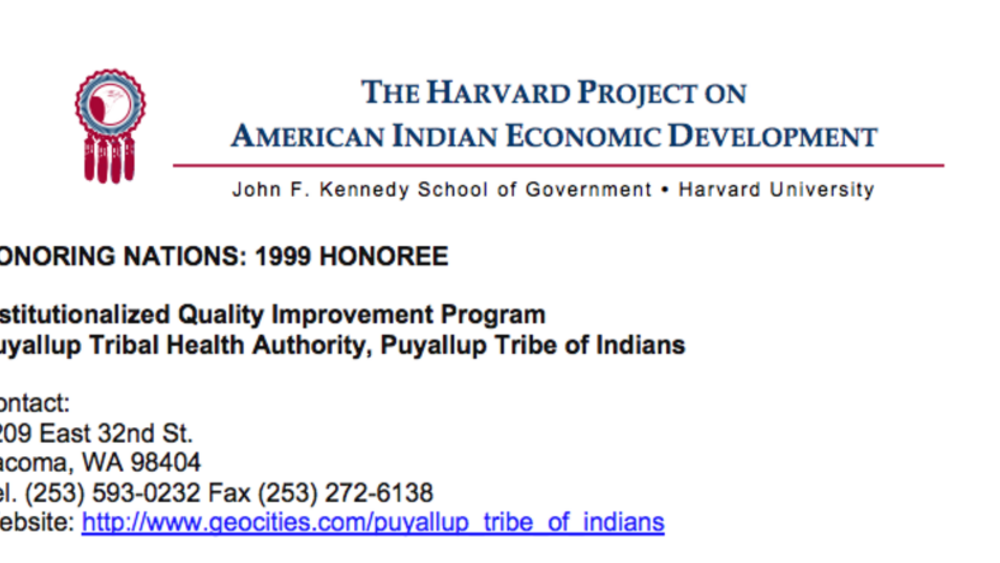
Puyallup's Institutionalized Quality Improvement Program
Following a major tribally-initiated restructuring in the early 1980s that created a quality improvement committee and a flatter organizational structure, the PTHA has increased patient access for urgent care visits, reduced "no show" rates, created clinical objectives, increased dental treatments…
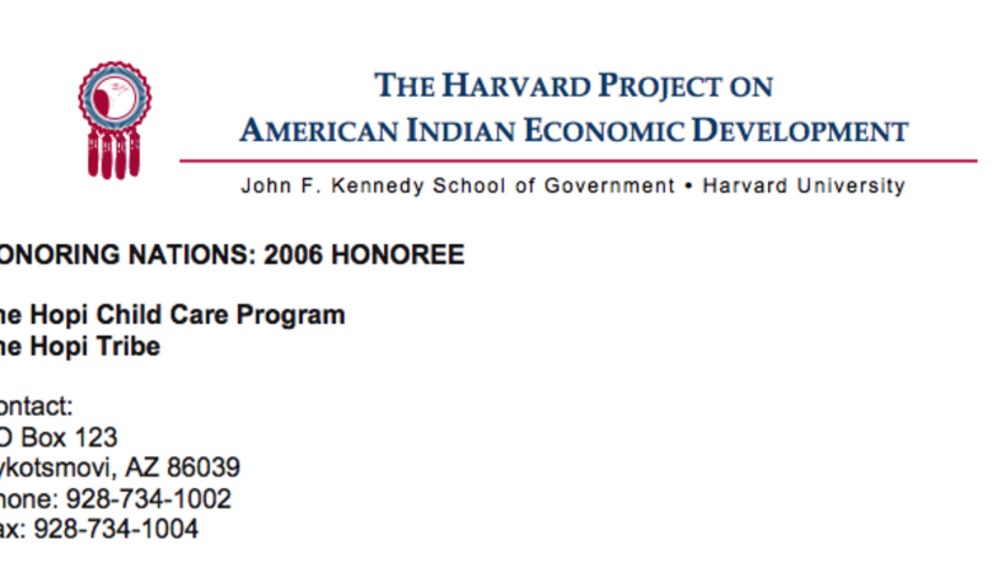
Hopi Child Care Program
The Hopi Child Care Program assists families in accessing quality care for children of parents pursuing education and those with work demands that keep them away from home. Understanding the importance of early childhood development coupled with the need for culturally appropriate care, Hopi…
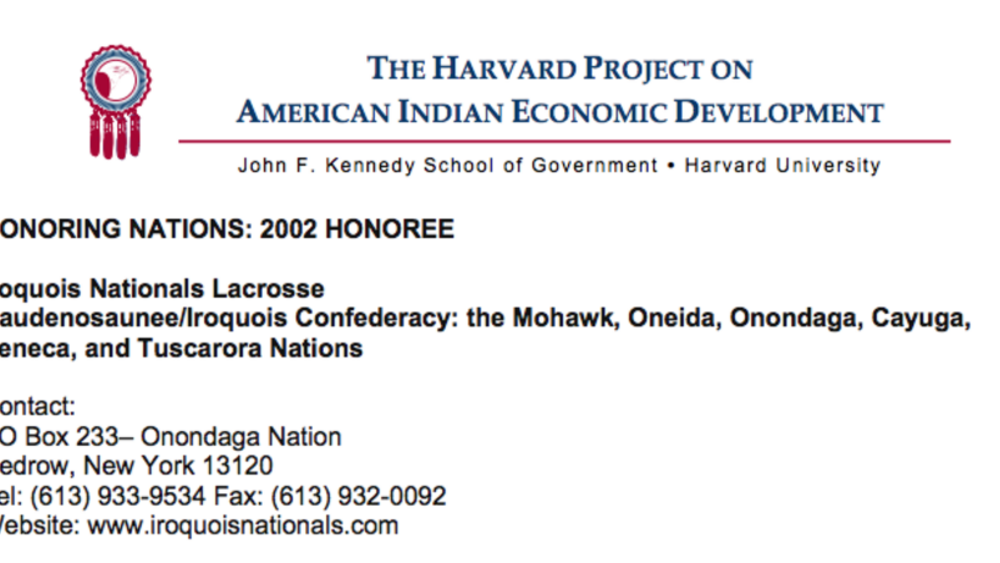
Iroquois Nationals Lacrosse
Officially sanctioned by the Grand Council of Chiefs to represent the Haudenosaunee (or Iroquois) in international lacrosse competition, the Iroquois Nationals Lacrosse Team represents a sovereign nation in world competition. The team — which has won numerous medals and awards — has successfully…
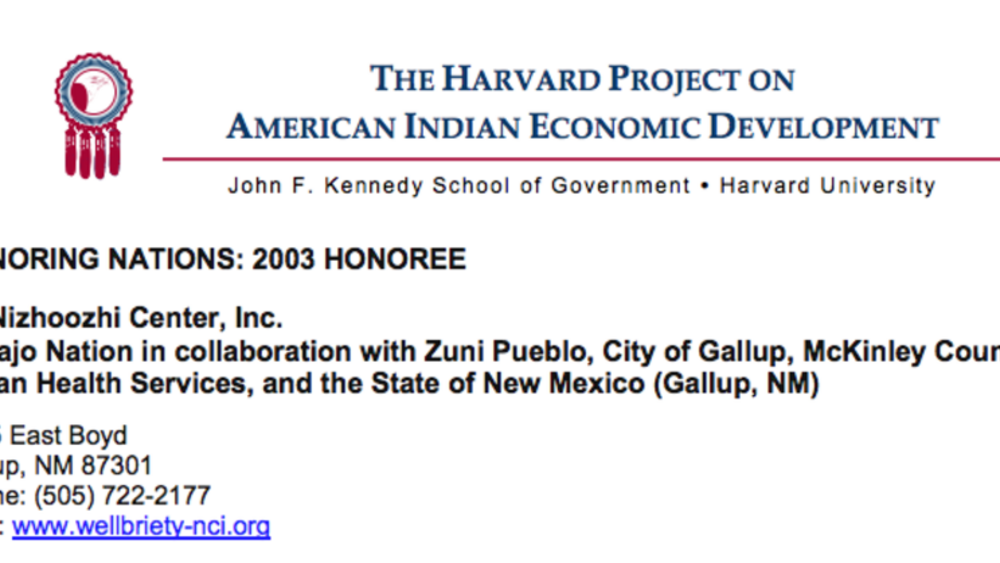
Navajo Nation's Na'Nizhoozhi Center, Inc.
Responding to the distressing rates of accidents, deaths, and other alcohol-related problems in Gallup, NM, the Navajo Nation partnered with Zuni Pueblo, the City of Gallup, McKinley County, and the State of New Mexico to establish the Na’Nizhoozhi Center in 1992. The Center has been an effective…
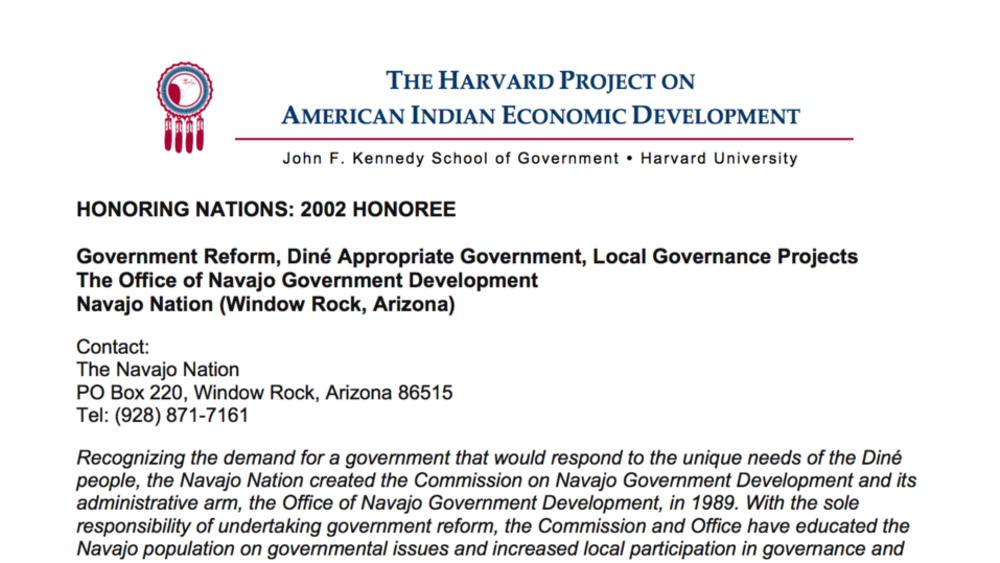
Diné (Navajo) Local Governance Projects
Formed in 1989 by the Navajo Nation Council, the Office of Navajo Government Development works with the Diné people and their elected leaders to conduct government reform, foster the incorporation of Navajo culture and tradition into the Navajo Nation Code, and facilitate the transference of…
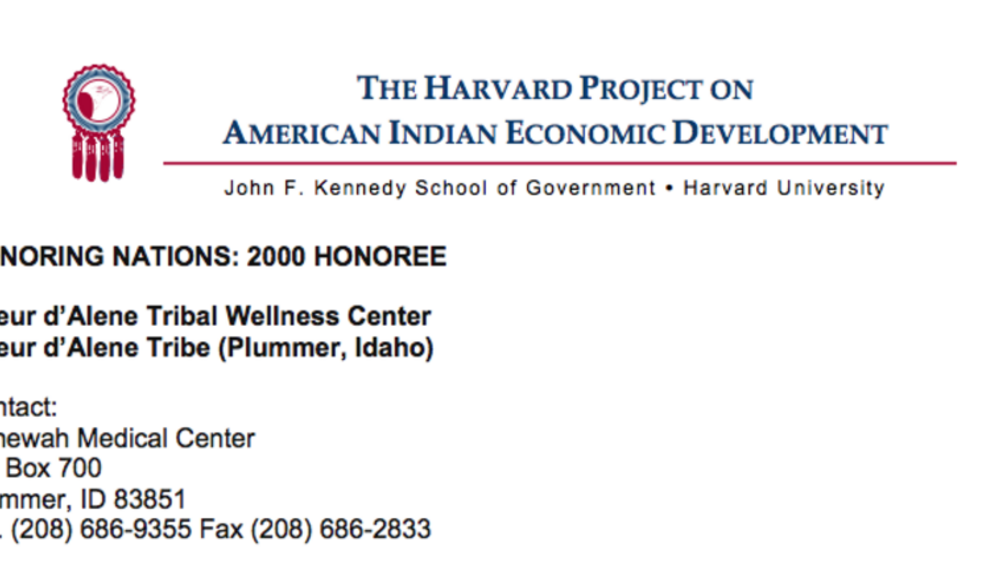
Coeur d'Alene Tribal Wellness Center
Created in 1998, the Wellness Center aims to promote healthy lifestyles by offering programs in fitness, aquatics, rehabilitation, childcare, and community health to 3,000 Indian and non-Indian clients. By employing the medicine wheel, or whole-life, approach to health and by focusing on…
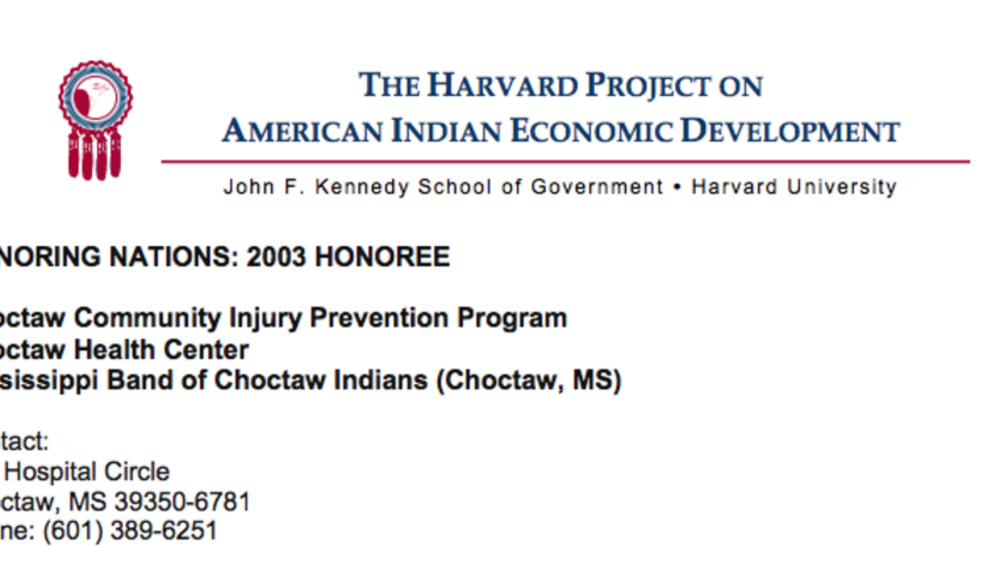
Choctaw Community Injury Prevention Program
Responding to alarming rates of preventable accidents on its reservation, the Mississippi Band of Choctaw created a comprehensive community injury prevention program in 2001. Through seat belt and child safety seat campaigns, strict enforcement of motor vehicle laws, and community-wide education…
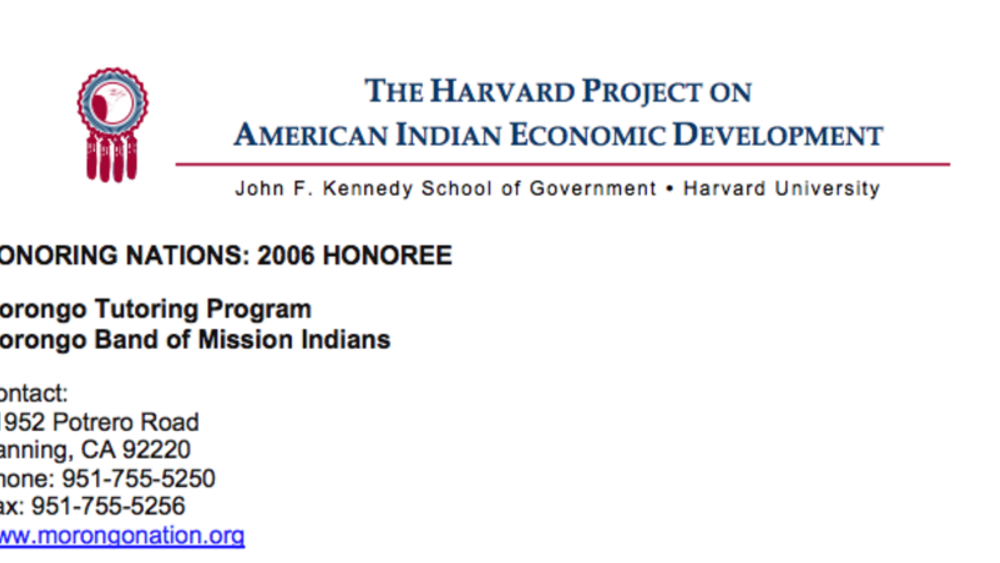
Morongo Tutoring Program
The Morongo Tutoring Program is one of the reasons the high school graduation rate of Morongo students is now at approximately ninety percent, the highest in tribal history. By providing much more than tutoring services, including life skills for early childhood through high school development;…
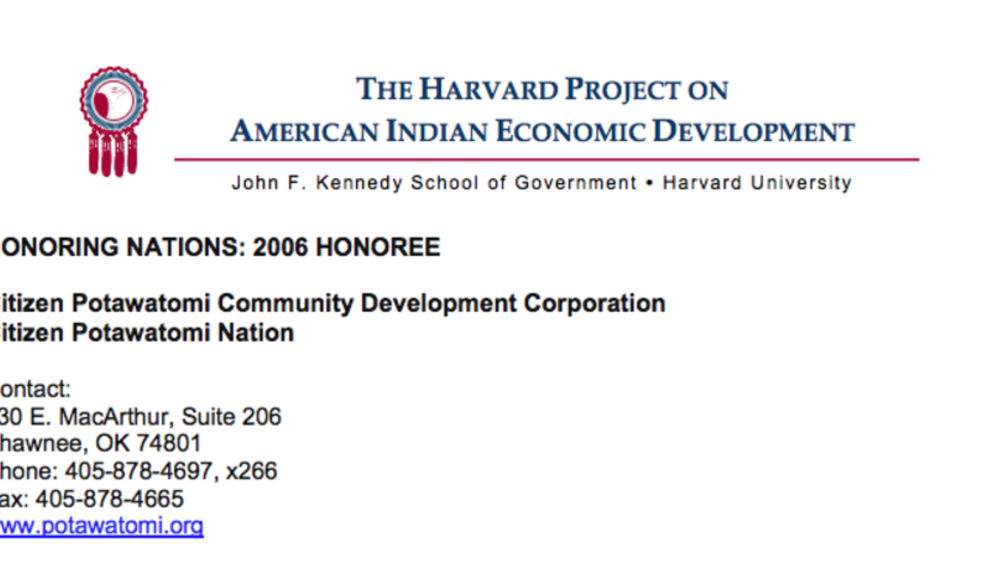
Citizen Potawatomi Community Development Corporation
Viewed as a one-stop shop for lending services, the Citizen Potawatomi Community Development Corporation provides holistic community development through business and employee loans, business development trainings, and financial literacy education. Demonstrating that the connection between…
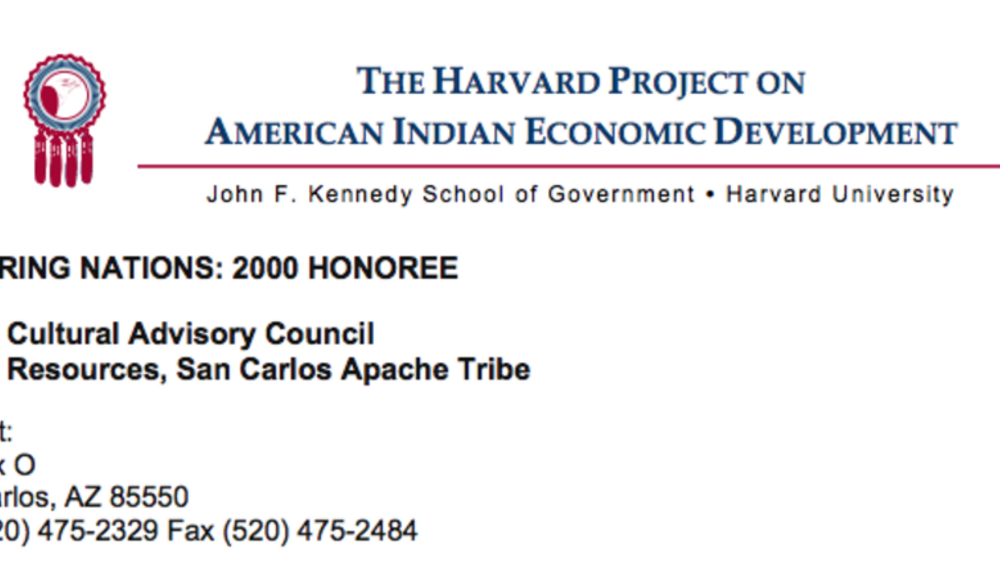
San Carlos Apache Elders Cultural Advisory Council
The Elders Cultural Advisory Council was formed by a resolution of the San Carlos Tribal Council in 1993 to advise on culturally related matters, to consult with off-reservation entities, and to administer and oversee cultural preservation activities. As a source of traditional wisdom, the Elders…
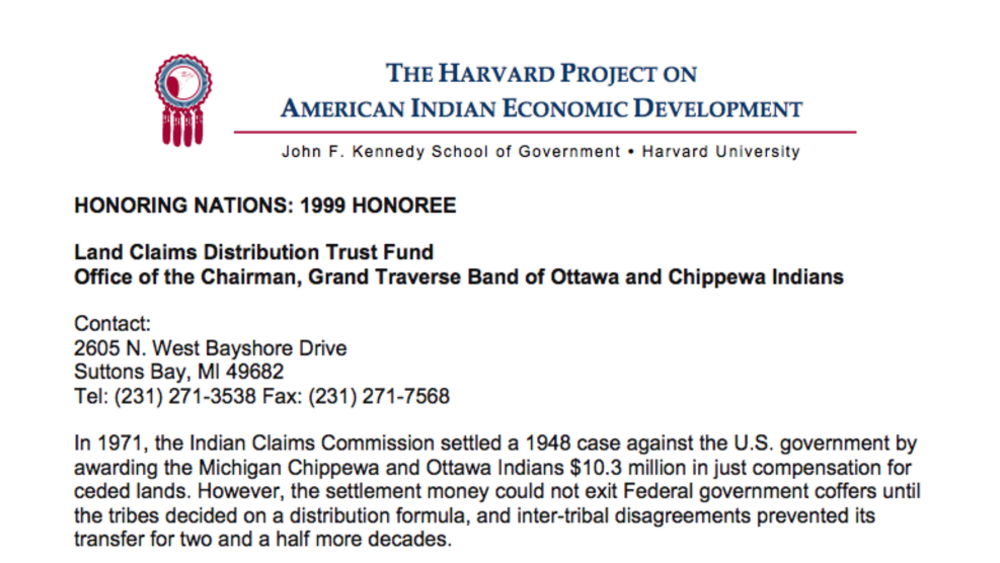
Grand Traverse Band's Land Claims Distribution Trust Fund
After 26 years of negotiation with the US government over how monies from a land claims settlement would be distributed, the Band assumed financial control over the settlement by creating a Trust Fund system that provides annual payments in perpetuity to Band elders for supplementing their social…
Pagination
- First page
- …
- 3
- 4
- 5
- …
- Last page
